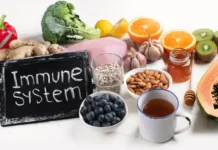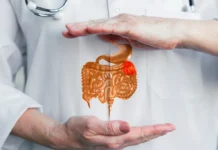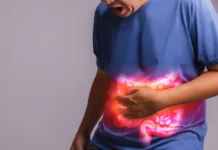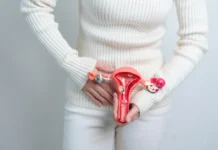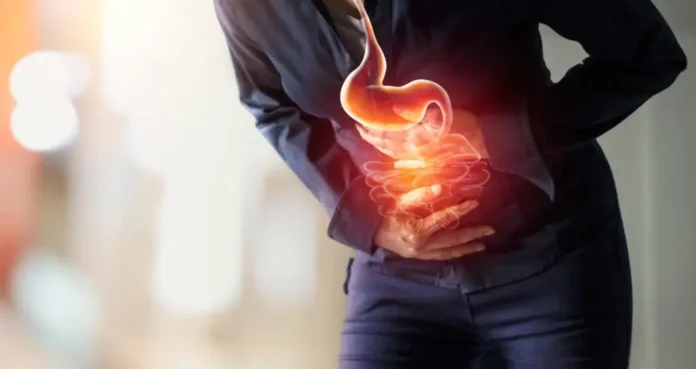What is gastritis?
Gastritis is a medical condition characterized by inflammation of the stomach lining, resulting in irritation. Various factors, including bacterial infections, contribute to inflammation, often leading to gastric ulcers in some cases.
This condition can present itself in two primary ways:
- Acute Gastritis: A sudden and severe inflammation of the stomach lining.
- Chronic Gastritis: A gradual, long-term inflammation lasting months to years, potentially causing complications. Some patients may experience ‘erosive inflammation,’ a less common form leading to gastric bleeding and ulcers.
Symptoms of Gastritis
While inflammation often presents no symptoms, some patients may exhibit:
- Nausea
- Vomiting, possibly with blood
- Reduced appetite and indigestion
- Burning pain in the upper abdomen
- Bloating
- Hiccups
- Tarry stool (in cases of erosive peptic ulcer disease)
When to Seek Medical Attention
If experiencing severe symptoms, especially blood in your vomit or stool persisting for over a week, immediate medical attention is necessary. If the prescribed medications do not alleviate symptoms, consult your doctor again.
Causes of Gastritis
Gastritis occurs when the stomach lining, which is designed to protect against digestive juices, weakens or breaks down. Factors contributing to this include:
- Bacterial Infection: Helicobacter pylori (H. pylori) bacteria, commonly causing infections, weaken the stomach lining.
- Digestive Disorders: Inflammatory Bowel Disease (IBD), such as Crohn’s disease, can lead to inflammation.
- NSAID Use: Excessive use of non-steroidal anti-inflammatory drugs (NSAIDs) like aspirin and ibuprofen can irritate the stomach lining.
- Viral Infections: Though less common, viral infections can damage the stomach lining.
- Autoimmune Disorders: Conditions like Hashimoto’s disease may trigger the body to attack the stomach lining.
Risk Factors for Gastritis
Certain factors increase the likelihood of an upset stomach:
- Bacterial infections, especially H. pylori
- Regular use of NSAIDs
- Aging, as the stomach lining thins
- Excessive alcohol consumption
- High-stress levels post-injury or surgery
- Autoimmune diseases
- Heavy smoking
Complications of Gastritis
Without prompt treatment, inflammation can lead to complications, including:
- Gastric ulcers
- Increased risk of stomach cancer with chronic gastritis
- Stomach bleeding
If symptoms persist, consult a doctor promptly to address potential complications.
Gastritis Treatment

The approach to treating inflammation varies depending on the specific case and its underlying cause, as is common with most gastrointestinal diseases.
For NSAID-induced gastritis:
If your inflammation is caused by NSAIDs, your doctor may discontinue their use and recommend alternative pain relievers, such as paracetamol, instead of aspirin. If discontinuation is not possible, your doctor might prescribe a medication to counteract the NSAID effects.
For bacteria-induced gastritis:
In cases where bacteria like H. pylori are responsible, your doctor may prescribe a course of antibiotics to address the infection.
Other gastritis treatment options may include:
- Proton pump inhibitors (PPIs), such as omeprazole (Prilosec) and lansoprazole (Prevacid), which block acid-producing cells, protect the stomach lining from excessive damage caused by digestive juices.
- Acid-reducing medications and antacids alleviate stomach acidity and ease gastritis pain, though some of these medications may lead to diarrhoea or constipation.
- Probiotics may be recommended to aid in the healing of the stomach lining.
In the majority of cases, inflammation symptoms tend to subside quickly after treatment.
Prevention of Gastritis:
Adopting lifestyle changes and home remedies can help prevent inflammation.
- Consuming less spicy and high-fat foods.
- Staying adequately hydrated means drinking plenty of fluids.
- Practising thorough hand hygiene before cooking and eating.
- Properly preparing and storing food.
- Limiting the use of NSAIDs or opting for alternatives.
- Reducing or eliminating alcohol consumption and smoking.
Gastritis during pregnancy:
Pregnant women experiencing gastrocolic disease may encounter more severe symptoms, including frequent heartburn, stomach pain, and vomiting. These issues do not pose a risk to the fetus and can be managed with home remedies, such as taking antacids, avoiding spicy, acidic, and fried foods, and abstaining from caffeinated drinks. Reducing red meat consumption is also advisable to alleviate stomach pain associated with inflammation of the lining of the stomach.
For more information on the symptoms, causes, treatment, and prevention of gastritis, please contact us.
Gastritis Facts and Frequently Asked Questions
What can I eat or drink if I have gastritis?
There is no one-size-fits-all answer to this question, as the best diet for gastritis will vary from person to person. However, in general, it is best to avoid foods that are greasy, spicy, or acidic. You should also avoid alcohol and caffeine. Eating small, frequent meals may also be helpful.
What can I do to prevent gastritis?
There are a few things you can do to help prevent gastritis, such as:
- Avoid smoking and excessive alcohol consumption.
- Managing stress.
- Take pain relievers only as directed.
- Practicing good hand washing to help prevent H. pylori infection.
When should I see a doctor for gastritis?
You should see a doctor if you have any of the following symptoms:
- Severe abdominal pain
- Blood in your vomit or stool
- Difficulty swallowing
- Weight loss
Additional tips:
- Ginger can help soothe the stomach and reduce nausea.
- Chamomile tea is also a calming herb that can ease stomach upsets.
- Probiotics are live bacteria that can help restore the balance of good and bad bacteria in the gut.




